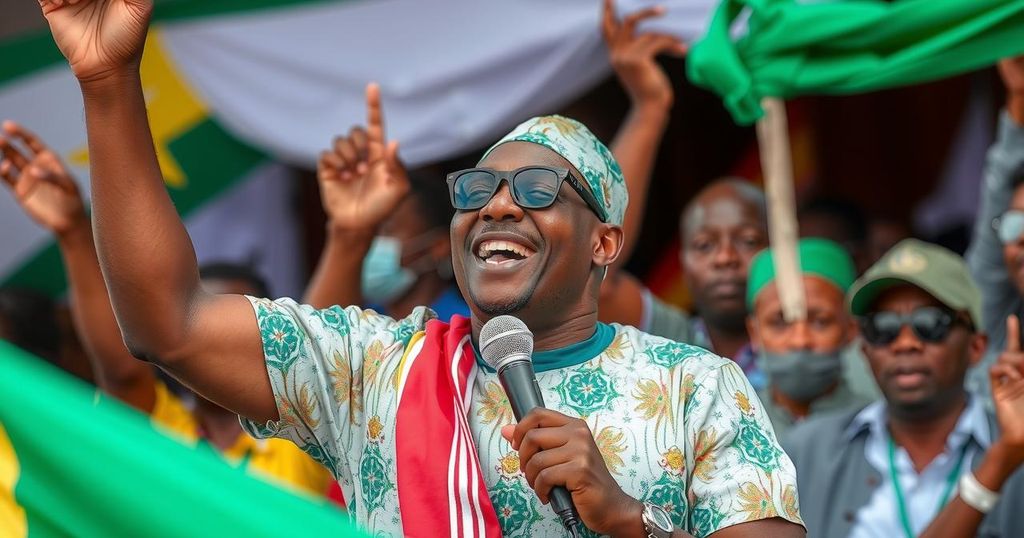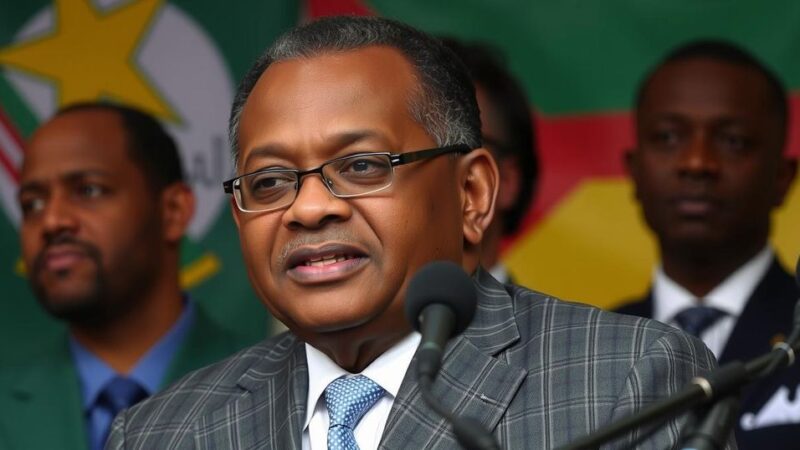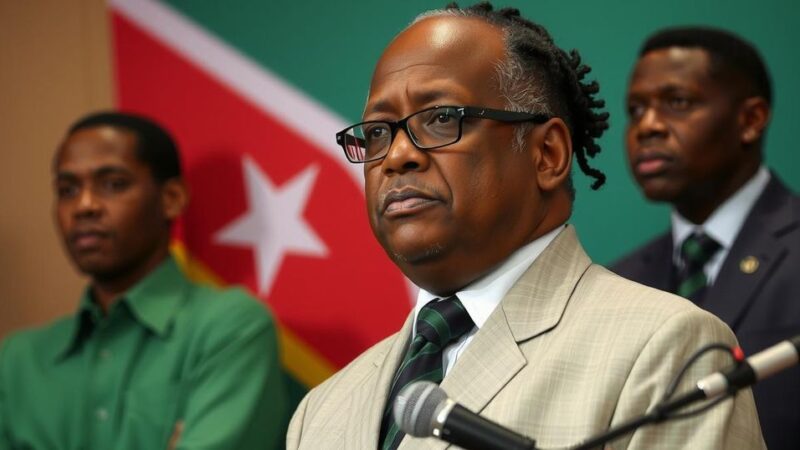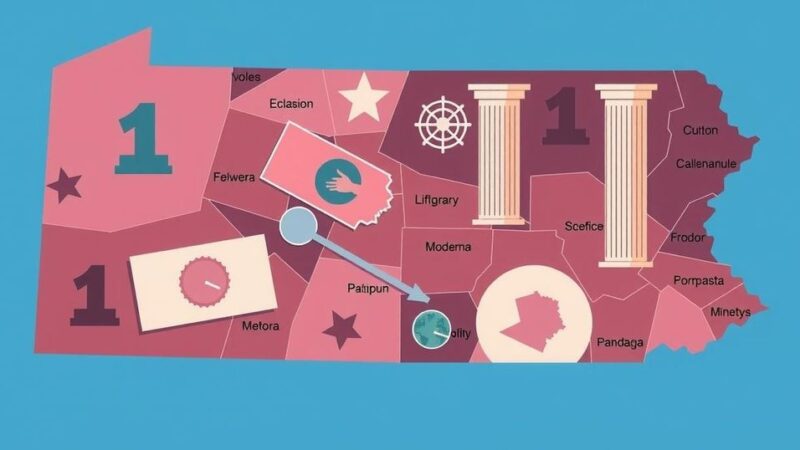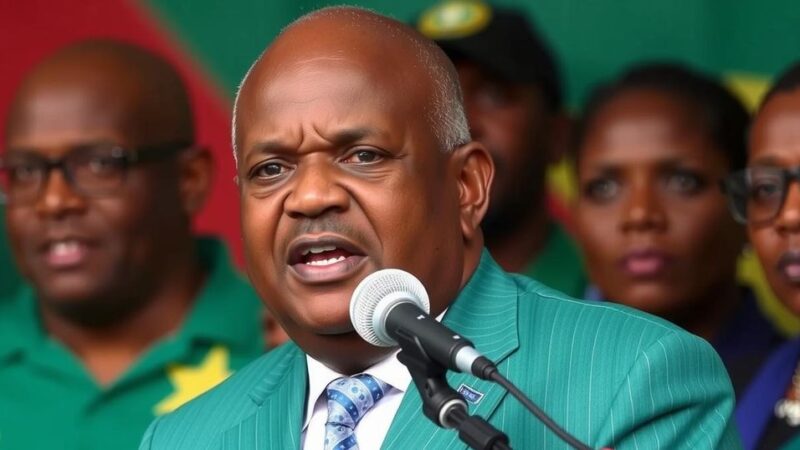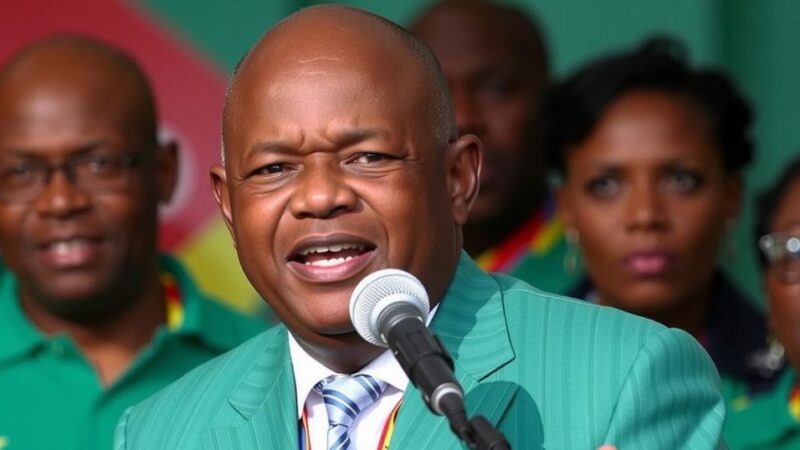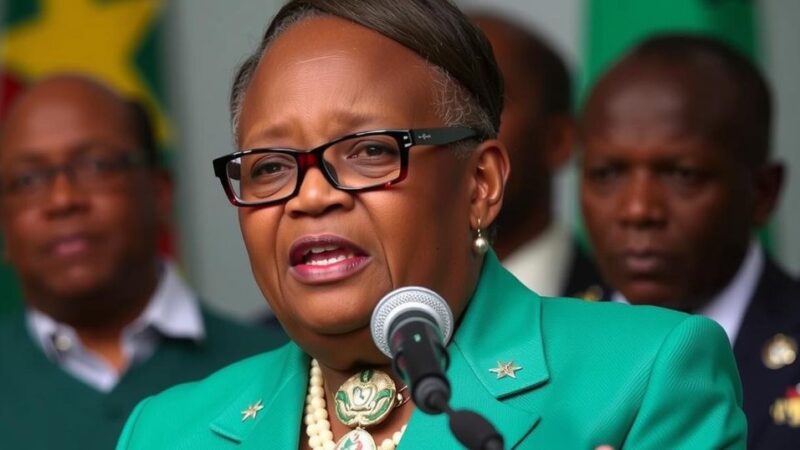In Ghana’s latest presidential election, the opposition claims that John Mahama is on track to win against ruling party candidate Mahamudu Bawumia, with preliminary results suggesting Mahama garnered 56.3 percent of the vote. The election has been overshadowed by economic concerns that have plagued the country. Final, official results are still pending as the electoral commission continues its tallying process.
The Ghanaian opposition party has asserted that preliminary results indicate their candidate, John Mahama, has won the recent presidential election, despite electoral authorities still compiling official results. The election saw Mahama of the National Democratic Congress (NDC) opposing Mahamudu Bawumia of the ruling New Patriotic Party (NPP). The campaign was heavily influenced by dissatisfaction with the current economic climate, characterized by high inflation and increasing living costs, compelling voters to lean towards Mahama as a change candidate.
Bawumia was vying for a third consecutive term for the NPP, aiming to maintain the party’s governance after President Nana Akufo-Addo’s two terms. According to the NDC’s spokesman Sammy Gyamfi, their internal review suggested Mahama secured 56.3 percent of the vote compared to Bawumia’s 41.3 percent. Despite claims by the opposition, the Electoral Commission has indicated that it is still in the process of collating votes from various constituencies and expects to release official results soon.
The election, which also included parliamentary selections, experienced notable tensions, with violence reported resulting in fatalities. Historically, Ghana has maintained a stable democratic process, alternating between the NPP and the NDC since the re-establishment of multi-party politics in 1992. Economic conditions were a prominent issue during this election cycle, as voters responded to the government’s management of the economy, prompting historical figures like Mahama to present themselves as alternatives to the current administration.
Voter turnout appeared steady, and polling proceeded without major disruptions, save for isolated incidents of violence that marred otherwise peaceful voting throughout the country. Mahama’s campaign draws on his previous tenure as president, as he seeks a return to power after losing two subsequent elections. The resounding message from the opposition underscores a decisive desire for governmental change among the electorate.
The recent presidential election in Ghana highlights the ongoing struggle between the ruling New Patriotic Party (NPP) and the opposition National Democratic Congress (NDC). John Mahama, who previously served as president from 2012 until 2017, is once again positioned against Mahamudu Bawumia, the current Vice President. As the nation grapples with significant economic challenges, including inflation rates that have affected citizen welfare, this election serves as a critical reflection of public sentiment towards the incumbent administration’s performance. Ghana has a longstanding tradition of democracy, with alternating victories between its two major political parties. With escalating economic frustrations, Mahama’s candidacy represents a sentiment of hope for change amid a backdrop of public discontent.
In summary, the declared preliminary results by Ghana’s opposition party suggest a potential victory for John Mahama in the presidential election against Mahamudu Bawumia. Central to this election were economic challenges, which significantly influenced voter choice amidst a historically stable democratic backdrop. Despite opposition claims, the Electoral Commission continues to tally official votes, underscoring the importance of adhering to formal electoral processes in determining the nation’s leadership moving forward.
Original Source: www.france24.com

